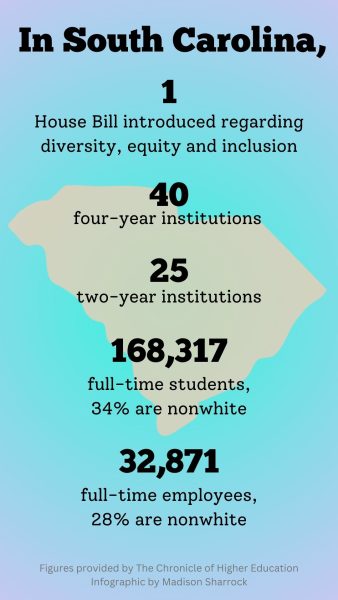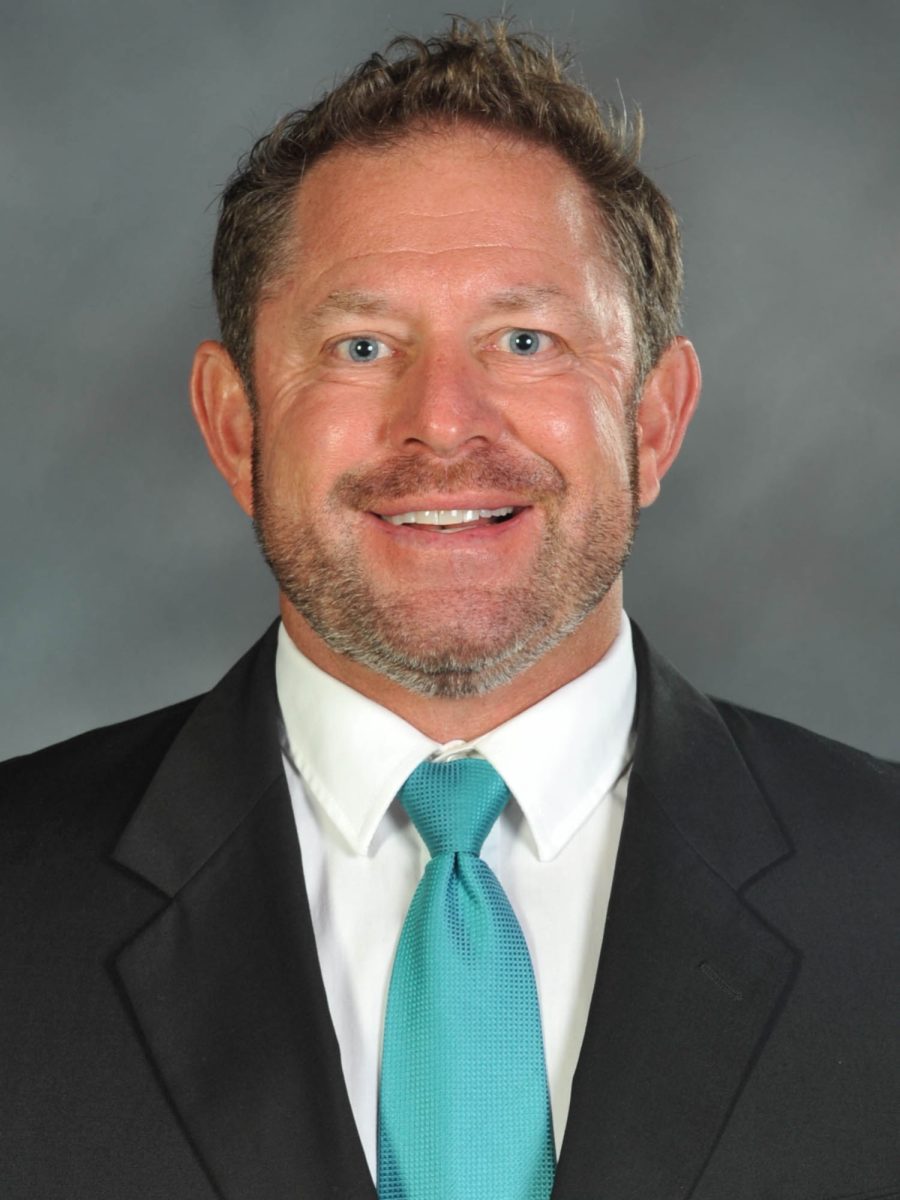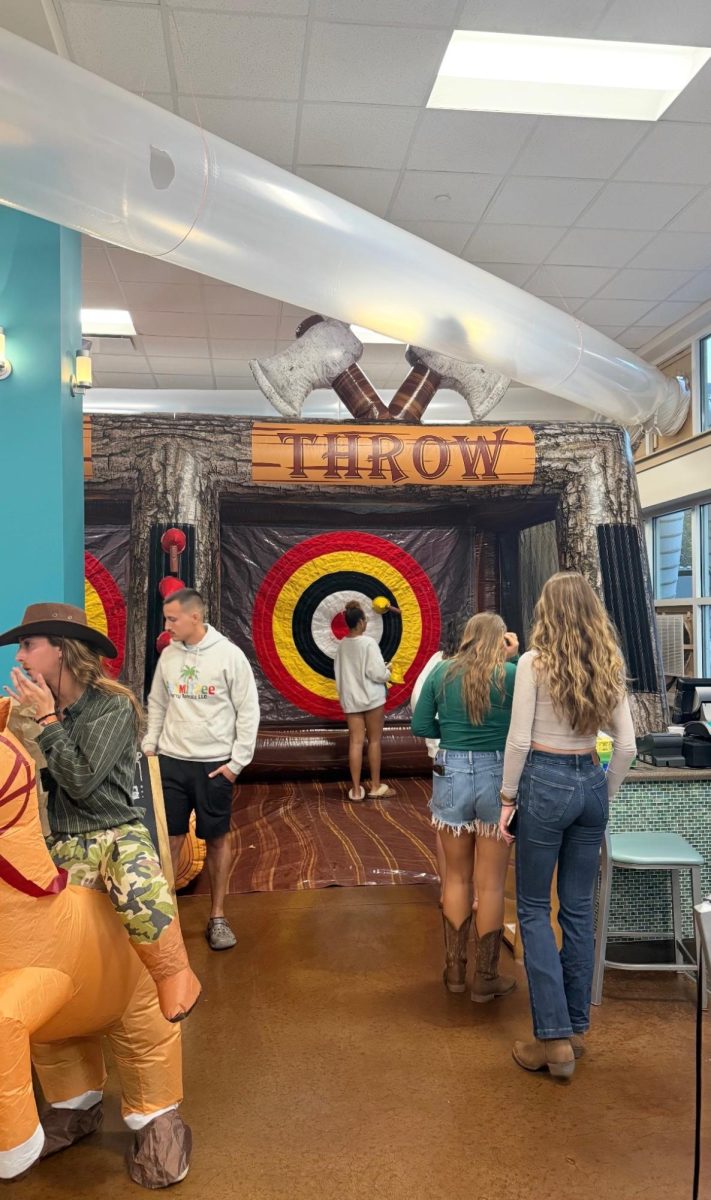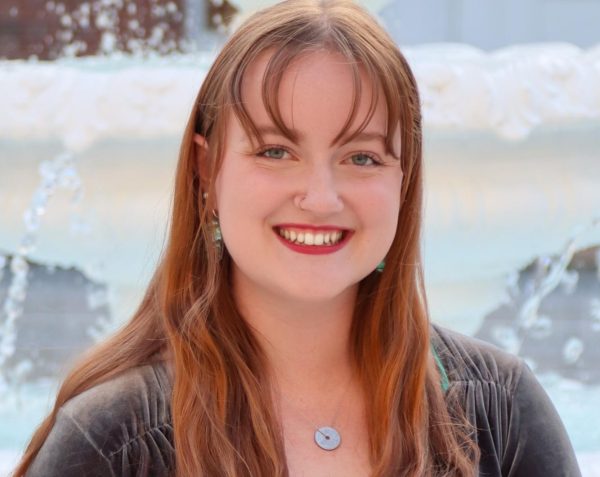Although Coastal Carolina University no longer has a designated office for diversity, equity and inclusion (DEI) efforts, some identity-based organizations on campus await the potential effects of reversing said efforts on the federal level.
CCU President Michael Benson sent out a campuswide email Feb. 7 acknowledging the federal changes.
“The scope of these executive orders, along with their anticipated effects at the federal, state and local levels, may have significant implications not only for CCU but for higher education institutions nationwide,” the email from The Office of the President read.

According to The Chronicle of Higher Education, there are 40 four-year institutions and 25 two-year institutions in South Carolina. Combined, there are 168,317 full-time students, of which 34% are nonwhite. There are also 32,871 full-time employees across the institutions, where 28% of them are nonwhite.
WE RiSE, an acronym for women educators of color reimagining sisterhood through education empowerment, has been an organization on campus since 2023. The close-knit club focuses on promoting professional development for women of color going into the education field.
Amari Sims, junior early childhood education major, is currently the president of WE RiSE. One of her main priorities is to make the club a welcoming safe space for any prospective member. Having a community on the campus of a predominantly white institution as a Black woman is crucial, especially when becoming a future educator, according to Sims.
“The field of education is not easy. Let alone being like a minority of that field,” Sims said. “It can make you feel odd in a way.”
Currently, WE RiSE and other identity-based organizations have not been instructed to take any action regarding the DEI rollbacks.
Taylor Williams, junior elementary education major and vice president of WE RiSE, said she isn’t worried about today but is concerned for her future as well as anyone going into the academic field.
“I can only imagine what it’s going to look like a year from now when I am ready to go find a job,” Williams said. “That’s the scary part.”
CCU deans recently received an emailed notice from the South Carolina House of Representatives requesting public universities to immediately close their respective DEI offices or “otherwise named” offices.
The notice complies to President Donald Trump’s executive order last month to reverse DEI programs and move “toward a colorblind and competence-based workplace,” according to the White House’s official website.
Merriam-Webster describes DEI as “a set of values and related policies and practices focused on establishing a group culture of equitable and inclusive treatment and on attracting and retaining a diverse group of participants, including people who have historically been excluded or discriminated against.” DEI is commonly thought to only include individuals of specific races or ethnic groups; however, it encompasses all things such as parental leave for fathers, wheelchair accessibility, time off for religious holidays, language translation services and more.
Using terminology like “colorblind” can be blissfully ignorant, according to Ina Seethaler, associate professor and director of women’s and gender studies at CCU.
“There’s clear evidence that we do not live in a color-blind world, we do not live in a gender equitable world. We do not live in a non-classist world. We certainly do not live in a non-ableist world,” Seethaler said. “We have to keep pushing for this discrimination to be fixed.”
The notice also claimed there’s money being spent on “waging ideological warfare on our next generation of innovators,” and said that students deserve to learn free from biases and retribution of their “purported worldviews.”
The executive order placed a pause on special emphasis programs and related activities related to observances including Black History Month, Women’s History Month, Holocaust Day/Days of Remembrance, Pride, Juneteenth and more.
“These offices, their goals, and their practices cost taxpayers millions of dollars to promote unamerican ideals while failing to accomplish the primary goal of South Carolina’s higher education system,” the notice read.
Sims said she doesn’t understand the rollbacks nor the attacks upon educators as she dreams of being a first-grade teacher once she graduates.
“Why take away that opportunity for them?” Sims asked. “That is in the Constitution, like liberty and justice for all. I just feel like it doesn’t uphold us, in a sense.”
Coastal’s former DEI office was rebranded as the division of University Belonging and Student Affairs as of July 2023, according to previous reports from The Chanticleer. Additionally, CCU’s Intercultural and Inclusion Student Services provides community for all students.
A commitment to DEI, to Williams, means witnessing representation especially to younger generations.
“I think me seeing them in the field of what I wanted to do pushed me to want to do it even better,” Williams said. “But if [younger generations] don’t see it, then they’re not going to be like, ‘Oh, I should do it.’ ‘Oh, that’s what I want to do.’”
House Bill 3572 was introduced to the South Carolina General Assembly last month regarding mandatory DEI training and diversity statements.
If passed, public universities must annually report data on administrative positions, diversity program costs and complaints related to this law to the Commission on Higher Education, who then reports to relevant legislative committees. This bill takes effect upon approval by Gov. Henry McMaster and currently resides in the House.
“Everybody wants to follow their dreams. So, like, why take away my dream?” Sims asked.
—–
Editor’s note: Meadow Myers, multimedia editor, also contributed to this article.


















